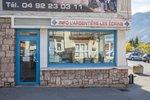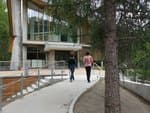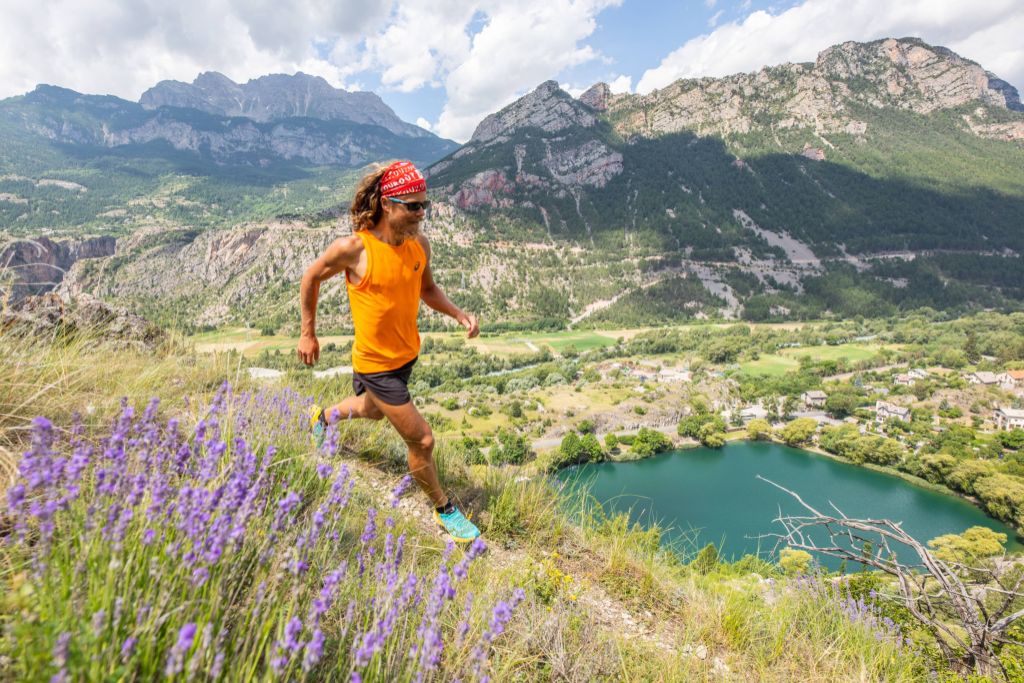
Marbre Rose circuit (trail route no. 3)
The route rises gently through the village, along a path and a forest track. When you reach the foot of the Oumbras (1,769 m), you will start a long traverse section overlooking the Durance valley. The descent then leads through Scots pines. Take a pretty single track which passes close by the pink marble quarry of Combe-Mounière. The marble from here was used in the construction of Gap Cathedral. You return to the village along a path running above the lake.
Description
Facing away from the entrance to the lake campsite, turn right to go through the village of La Roche-de-Rame along the Rue “Les Queyras”. After going past the cemetery, continue to the right.
- Turn left. At the end of this track, at the D38 continue by turning right. A short distance further up, cross the bridge on the right after the Bouchouse hydroelectric power station. The route gradually rises until it runs at a height above the lake.
- At the Bel Pinet sector, take the track on the right to start the descent.
- Where the tracks intersect, take the right-hand track to tackle the descent.
- At the next intersection, continue on the path on the right
- When you are back on the forest track, take a path running downhill below the hairpin and this brings you back to your starting point.
- Departure : Camping du lac (lake campsite), La Roche-de-Rame
- Arrival : Camping du lac (lake campsite), La Roche-de-Rame
- Towns crossed : La Roche-de-Rame
Altimetric profile
Recommandations
Before setting off, it is very important to check the opening periods for this route on the website: https://stationdetrail.com/fr/stations/le-pays-des-ecrins/parcours
Share your photographs on social networks with #stationdetrailecrins
Check weather conditions before setting off.
Rescue services contact details: Secours Montagne (Mountain Rescue): +33 (0)4 92 22 22 22 or 112
Show consideration for the work of farmers, livestock keepers and owners
Close all gates behind you
Take your litter home
Do not take shortcuts across pastureland
The trail routes are also suitable for walking
Information desks
23 Avenue de la République, 05120 L'Argentière-La Bessée
Vallouise Park house
, 05290 Vallouise
Information, documentation, models, exhibitions, screenings, product sales and works of the Park. Guided tours for school, reservation required. The new Park House opened in Vallouise since June 1, and offers visitors an interactive permanent exhibition inviting to explore the area and its heritage. A temporary exhibition space will allow a renewed offer. Finally, the device is completed by an audiovisual room to organize screenings and conferences Free admission. All animations of the Park are free unless otherwise stated.
Transport
Public transport >> www.pacamobilite.fr
Consider car-sharing >> www.blablacar.fr
For more information, ask at the Tourist Information Office nearest to the trail starting point.
Access and parking
6.5 km from L'Argentière-La Bessée, take the N94.
Parking :
Sensitive areas
Short-toed snake eagle
- Impacted practices:
- Aerial,
- Sensitivity periods:
- MarAprMayJunJulAugSep
- Contact:
- Parc National des Écrins Julien Charron julien.charron@ecrins-parcnational.fr
6 points of interest
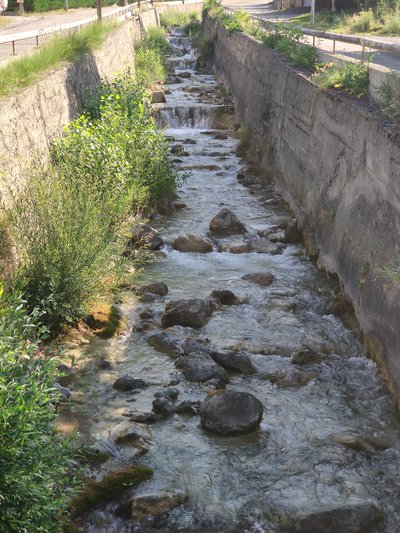
Torrent de Bouchouse - Office de tourisme du Pays des Écrins  Water
WaterBouchouse mountain stream
The Bouchouse mountain stream is fed by the Le Pansier and La Pisse mountain streams 1,900 metres above sea level. It crosses the municipality of La Roche-de-Rame, supplying it with water. This mountain stream then flows into the Durance below the municipality.
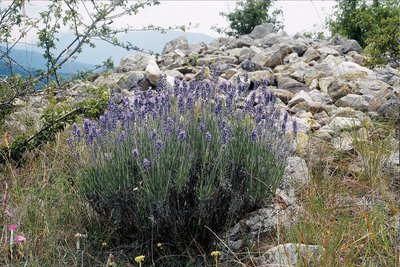
Lavande à feuilles étroites - Bernard Nicollet - Parc national des Écrins  Flora
FloraThe narrow-leaved lavender
The narrow-leaved lavender has greenish-grey leaves and violet flowers. It grows in sunny areas, a reminder that the Pays de Écrins is in the Southern Alps after all! Not to be confused with the lavandin, this plant naturally grows on rocky slopes in the mountains of the Midi. The word «lavender» is thought to come from the Latin "to wash". This etymology suggests that lavender was used at a very early date to perfume washing.
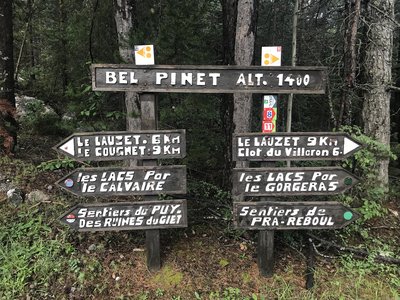
Bel Pinet - Office de tourisme du Pays des Écrins  History
HistoryBel Pinet
Bel Pinet stands at 1,400 metres above sea level in the Bouchouse valley, in the municipality of La Roche-de-Rame. Bel Pinet, or Bel-Pinet, designates the slopes under the rocky cliffs of the Oumbras. It was once irrigated by the Bel Pinet Canal, which suggests that it used to be cultivated and would therefore have been less wooded. The term "Pinet" simply means a place planted with pines (Pinus in Latin). So Bel Pinet means a beautiful place planted with pines, or a beautiful pine wood.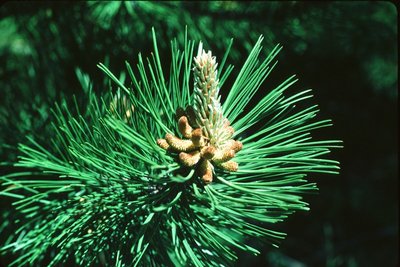
Pin sylvestre - Parc national des Écrins  Flora
FloraPine forest
The path runs through a forest of Scots pine, recognisable by its orangey trunk, especially at the top. This tree is very drought-resistant (it is very limey soil here) and can also withstand low temperatures. It is therefore found in large numbers in the intra-alpine valleys.
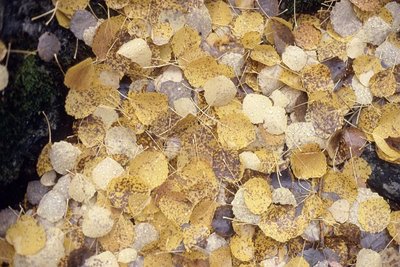
Daniel Roche - Parc national des Écrins  Flora
FloraThe aspen wood
Here, a wood of aspen trees, with smooth greenish trunks and round, crenulated leaves, adopt magnificent autumn colours. The petiole («tail») of aspen leaves is flat and twisted and can therefore be caught by the slightest breath of air. This has the effect of making the foliage tremble, hence its French name bois de tremble!
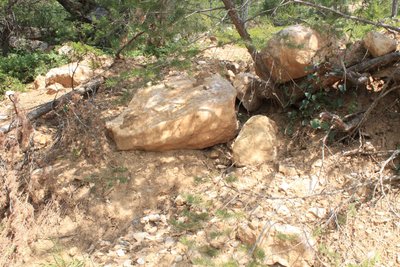
Marbre rose - Office de tourisme du Pays des Écrins  History
HistoryThe Pink Marble of Combe Mounière
In the nineteenth century, there were four quarries in La Roche-de-Rame. They exploited deposits of metamorphosed limestone which was pink in colour. One of these, the Combe Mounière quarry, produced stone which was used in particular in the construction of the new Cathedral of Saint-Arnoux in Gap, between 1866 and 1904. When exposed to the elements, the surface of the limestone takes on a grey patina.
Source

Report a problem or an error
If you have found an error on this page or if you have noticed any problems during your hike, please report them to us here:

